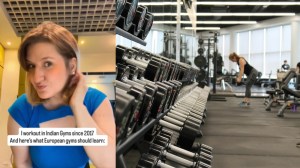India tells EU how to sugar-coat a deal
India is going to sweeten the mega aircraft purchase deal. If the European Union (EU) wants New Delhi to buy their Airbus aircraft, they sho...

India is going to sweeten the mega aircraft purchase deal. If the European Union (EU) wants New Delhi to buy their Airbus aircraft, they should pick up sugar from India.
This is an innovative strategy that the government plans to adopt in the final stages of the intricate trade negotiations. The proposal has come from the Ministry of Agriculture and the Ministry of Commerce appears keen on it.
For EU, at stake is $ 2 billion for 43 airplanes that Indian Airlines proposes to buy. For India, there is an ailing sugar industry with more stocks than they can handle and doors to export markets firmly shut with Quantitative Restrictions (QRs).
‘‘It is done the world over for these big deals so why should India not do it,’’ said an official at the Ministry of Agriculture. According to officials, when Korea hammered out a deal with Boeing, they put in a clause that the wings be manufactured in Korea to help their domestic industry.
Why sugar? Seven million tonnes of sugar is lying in the sugar mills. Consumption is going down in spite of increasing population. The only way out is exports. In fact, last year, exports suffered because the Brazilian currency was devalued and their sugar flooded the market. Not even a tonne went out of the Indian markets.
QRs imposed by the EU mean that India is allowed to export 10,000 tonnes of sugar. This was decided in 1981 and since then, India’s sugar production has grown four-fold.
EU favours countries like Mauritius and Fiji because of the French connection. Out of the 1.7 million tonnes that EU imports, India only has a small pie. Both Boeing (a US company) and Airbus (owned by a European consortium) have been front-runners and have been trying to woo the Indians. The world is expecting India to buy 222 civilian aircrafts over the next 20 years, raising the market to $ 17.5 billion.
In short, India, is looking at the sugar clause as a lever to play one company against the other. Market-watchers are ecstatic over this possibility in the post-WTO regime in which developed countries guard trade interests by using QRs effectively.
If a deal can be struck for sugar, it can be wheat and rice the next year. They are also waiting and watching whether the European palate can get addicted to cane sugar when they are use to beet-root sugar.



- 01
- 02
- 03
- 04
- 05




























